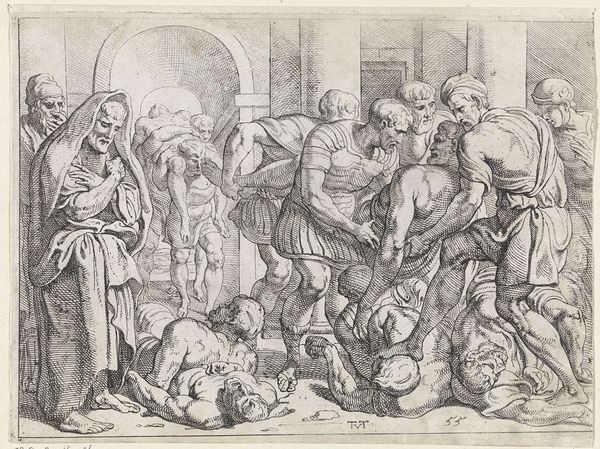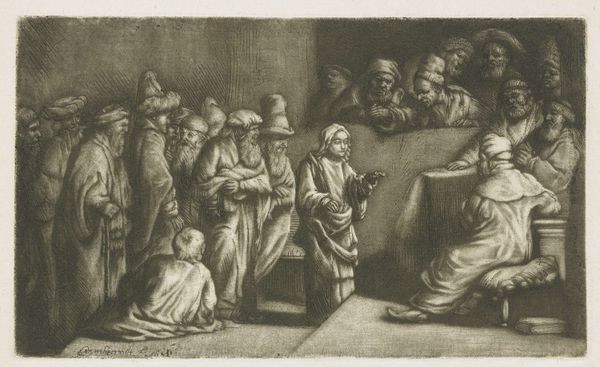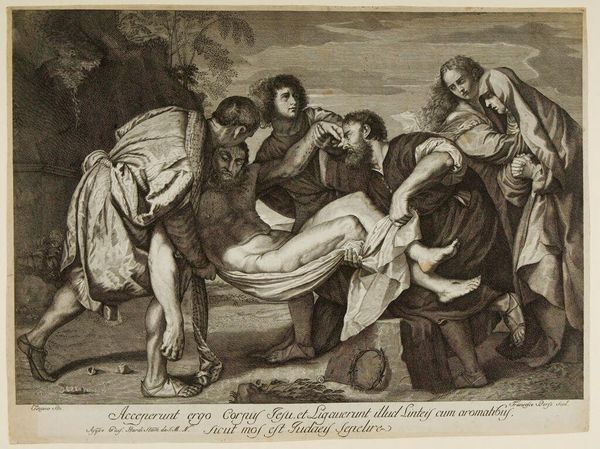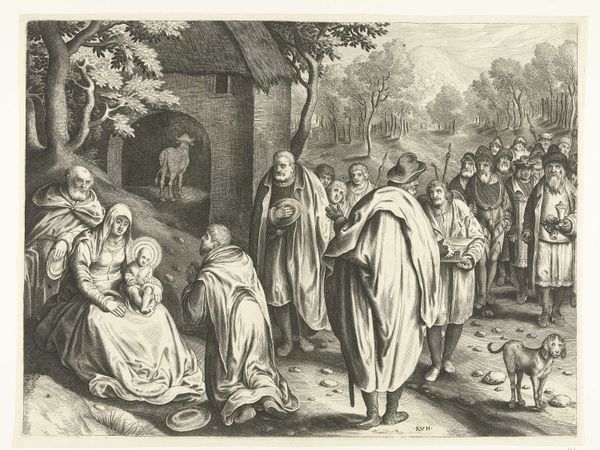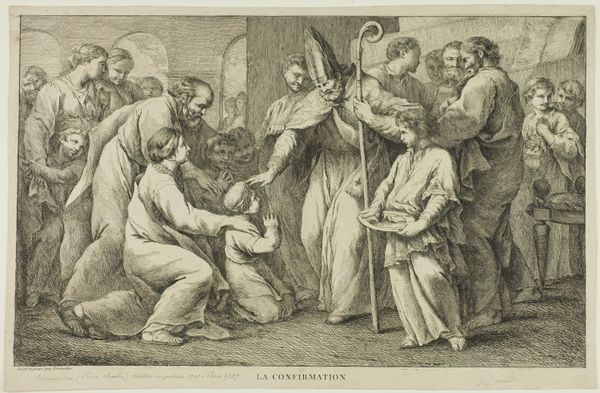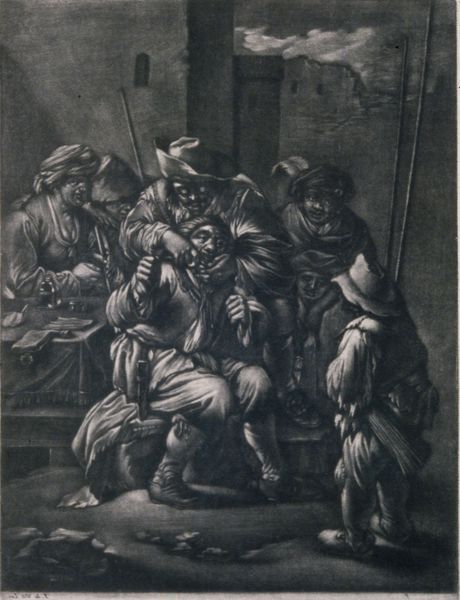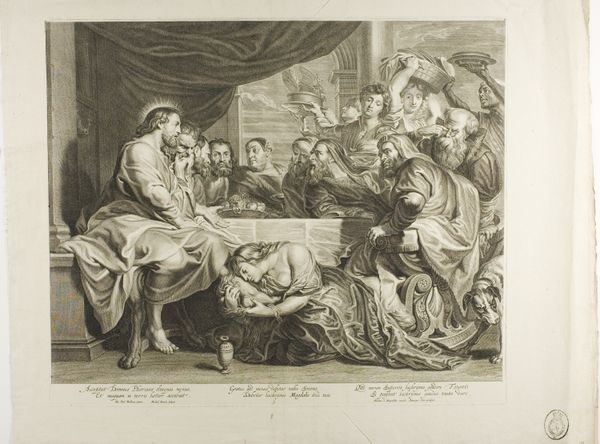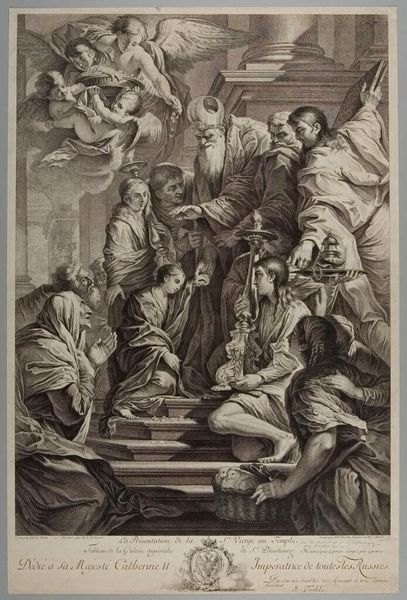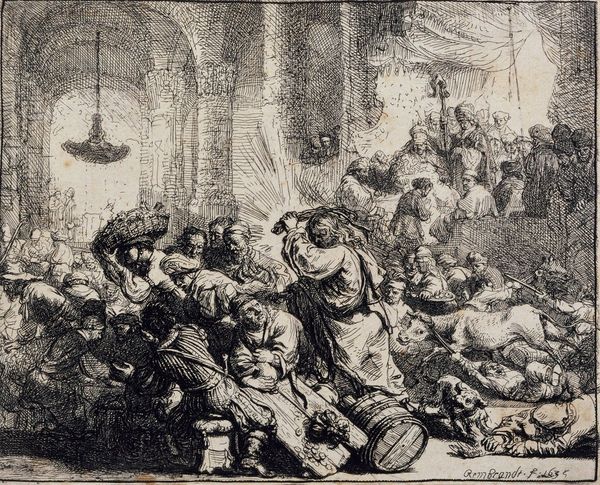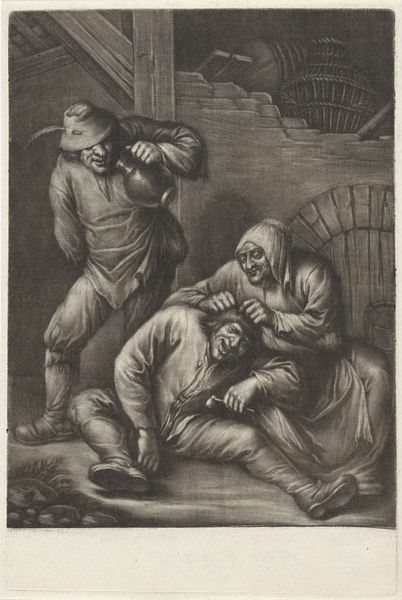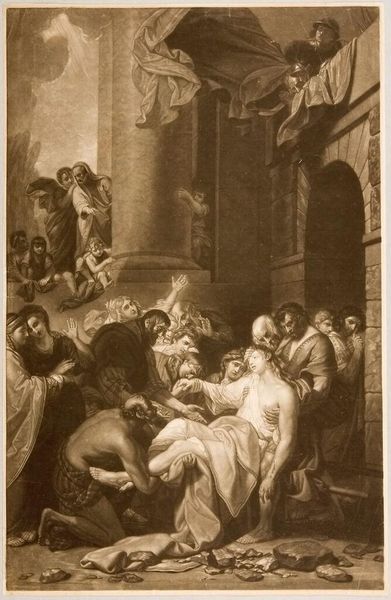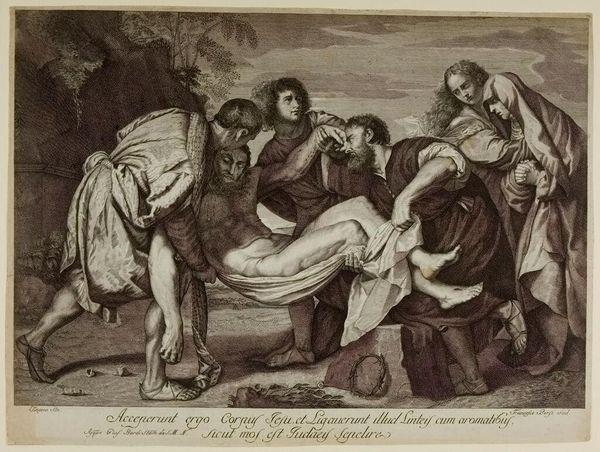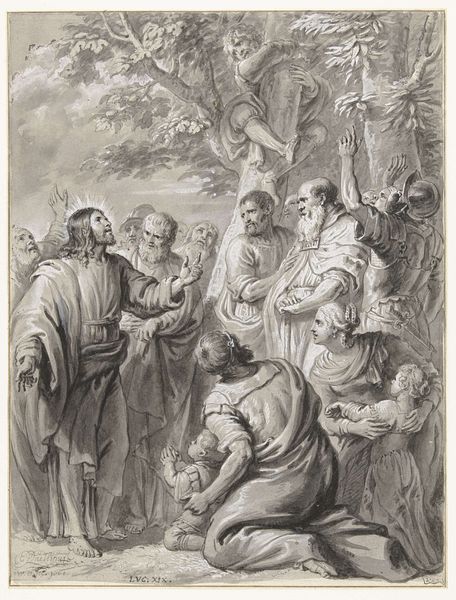
Copyright: CC0 1.0
Curator: Oh, the drama! It's Robert Dunkarton's "Joseph's Cup is Found in Benjamin's Sack." Look at the expressions—pure theatre! Editor: Yes, it speaks to power dynamics, doesn’t it? Consider the political implications of theft and accusation within the context of early societal structures. Curator: Absolutely. It feels like a stage play, doesn't it? All eyes are on Benjamin. His shock is palpable. But is it truly shock, or performative innocence? Editor: I find myself thinking about the concept of "othering." Benjamin's predicament highlights the precarity of marginalized individuals within systems of control. Curator: Precisely! And the cup itself—more than just a missing item, it’s a symbol of deception, of manipulated trust. Dunkarton really captures that betrayal. Editor: Indeed. And in exploring this narrative, Dunkarton’s piece provides a lens through which to understand how narratives of guilt and innocence are constructed. Curator: I do think there's an emotional current here. The raw vulnerability Dunkarton managed to convey in all these faces is truly arresting. Editor: It serves as a stark reminder of the ongoing relevance of these historical narratives in shaping our contemporary understanding of justice and inequality.
Comments
No comments
Be the first to comment and join the conversation on the ultimate creative platform.
